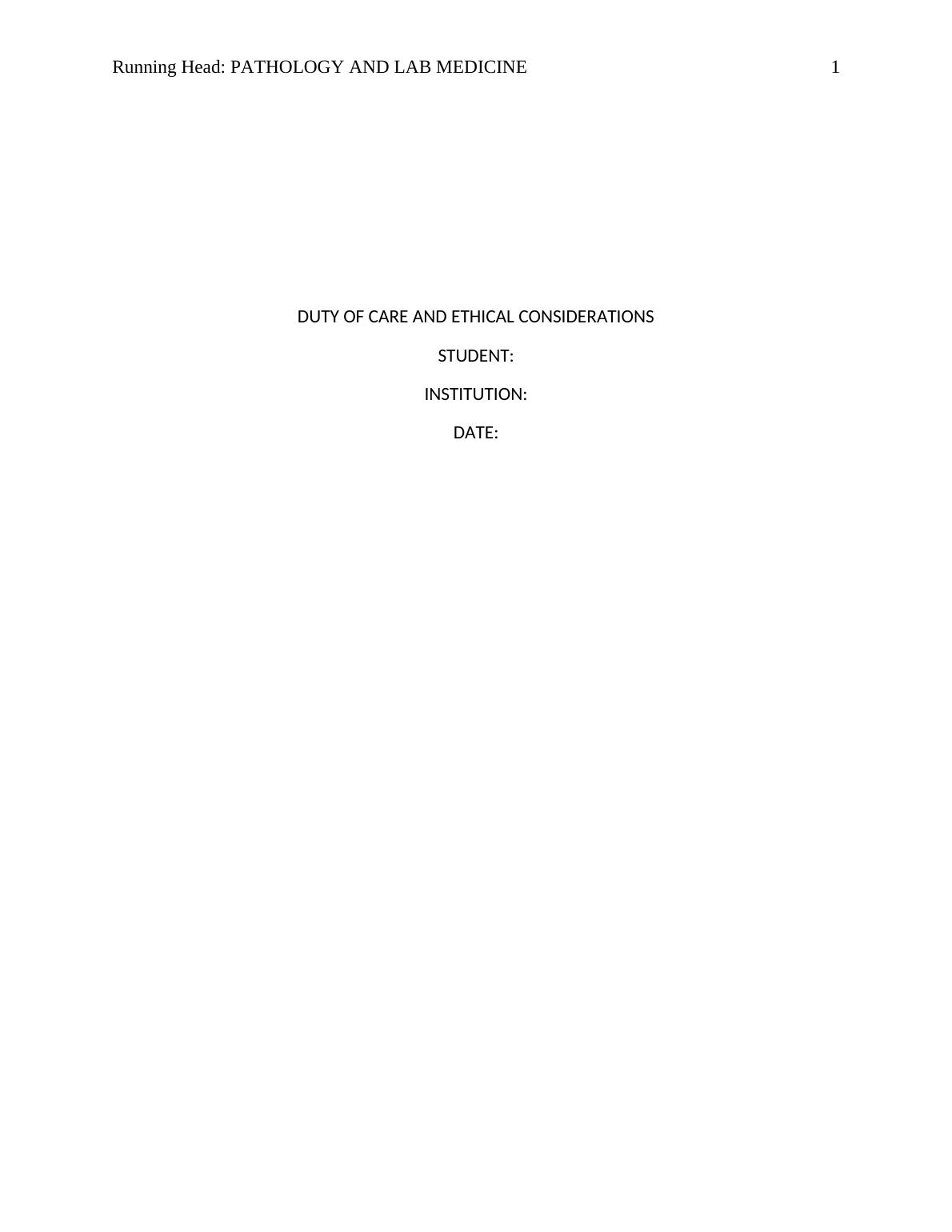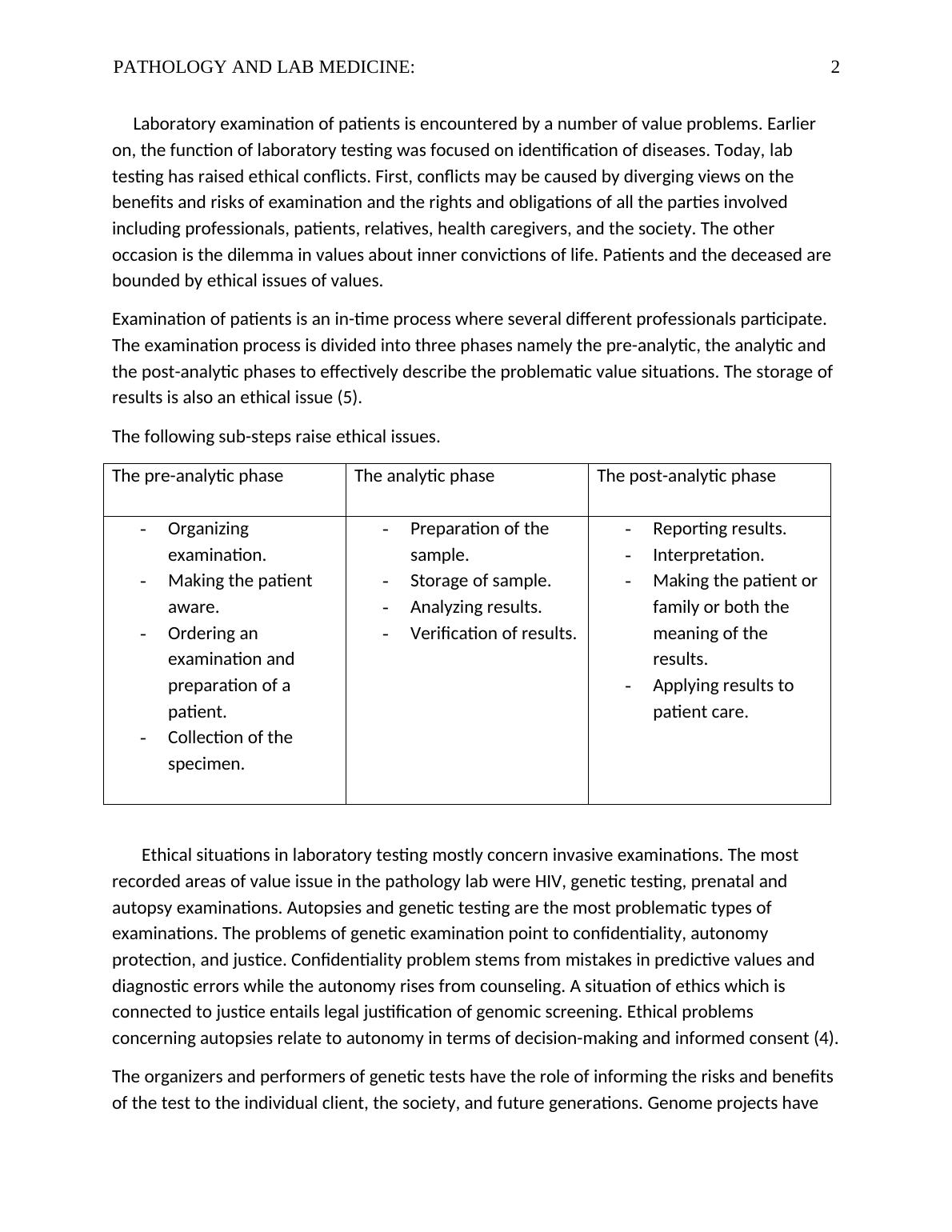Laboratory Examination of Patients
4 Pages1116 Words138 Views
Added on 2020-03-23
Laboratory Examination of Patients
Added on 2020-03-23
ShareRelated Documents
Running Head: PATHOLOGY AND LAB MEDICINE 1DUTY OF CARE AND ETHICAL CONSIDERATIONSSTUDENT:INSTITUTION:DATE:

PATHOLOGY AND LAB MEDICINE: 2 Laboratory examination of patients is encountered by a number of value problems. Earlier on, the function of laboratory testing was focused on identification of diseases. Today, lab testing has raised ethical conflicts. First, conflicts may be caused by diverging views on the benefits and risks of examination and the rights and obligations of all the parties involved including professionals, patients, relatives, health caregivers, and the society. The other occasion is the dilemma in values about inner convictions of life. Patients and the deceased are bounded by ethical issues of values.Examination of patients is an in-time process where several different professionals participate. The examination process is divided into three phases namely the pre-analytic, the analytic and the post-analytic phases to effectively describe the problematic value situations. The storage of results is also an ethical issue (5). The following sub-steps raise ethical issues.The pre-analytic phaseThe analytic phaseThe post-analytic phase-Organizing examination.-Making the patient aware.-Ordering an examination and preparation of a patient.-Collection of the specimen.-Preparation of the sample.-Storage of sample.-Analyzing results.-Verification of results.-Reporting results.-Interpretation.-Making the patient or family or both the meaning of the results.-Applying results to patient care. Ethical situations in laboratory testing mostly concern invasive examinations. The most recorded areas of value issue in the pathology lab were HIV, genetic testing, prenatal and autopsy examinations. Autopsies and genetic testing are the most problematic types of examinations. The problems of genetic examination point to confidentiality, autonomy protection, and justice. Confidentiality problem stems from mistakes in predictive values and diagnostic errors while the autonomy rises from counseling. A situation of ethics which is connected to justice entails legal justification of genomic screening. Ethical problems concerning autopsies relate to autonomy in terms of decision-making and informed consent (4).The organizers and performers of genetic tests have the role of informing the risks and benefits of the test to the individual client, the society, and future generations. Genome projects have

End of preview
Want to access all the pages? Upload your documents or become a member.
